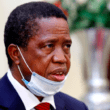PF chairperson for Legal Affairs, Brian Mundubile says it would be unattractive for a bigwig like Charles Kakoma to defect to PF if the party prevented him from being a member of the Central Committee.
He explained that the former UPND spokesperson Charles Kakoma qualified to be elected as member of the Central Committee because the latest standing orders passed a resolution for new party members to be treated on an equal basis.
According to the PF constitution, an individual can only be elected as a Member of the Central Committee after serving the party for five years.
But Kakoma who defected to PF less than three weeks ago has been appointed to the highest organ of the ruling party, attracting some negative comments from some lower organ members who have condemned the development.
Explaining the appointment in an interview, Monday, Mundubile said the latest standing orders approved by the national council provided for all members, new or old, to be treated equally adding that Kakoma thus qualified to be elected as MCC.
“So, this was the decision of the Central Committee. It was not even the decision of the last Central Committee. For instance, [Charles] Kakoma might not even be the newest member of the party but in the spirit of reconciliation, in the spirit of building the party some of those requirements that hinder members to come, were dealt with. Because from 2019, it meant that if I wanted to get you as a big wig, and I put a five-year period before you can hold any position, it would be unattractive. So, these are decisions the Central Committee made previously. So, the decision of the Central Committee, which is now a standing order is that if you come in now, today you join the PF, you would be a member with rights like any other. And that is in line with Article 14 because if you look at Article 14, it is not classifying members,” he said.
He said there were standing orders that allowed a situation which saw Kakoma being elected.
“When you look at Article 68, 69 and 70, these are talking about standing orders and regulations and the Central Committee makes standing orders and regulations in respect of any subject to facilitate the implementations of the provisions of the constitution. Regulations and standing orders of the party made by the Central Committee may be enforced, subject to ratification by the central committee. Regulations and standing orders approved by the national council, shall be read as part of the constitution and may be amended, rescinded or altered by this constitution,” he explained.
“That is why you find that we have different arguments. Because somebody can come up strictly and argue for instance on the provisions of the Central Committee. But if they are not previewed to other standing orders, and regulations that the central committee came up with, they might even say there is a breach in the constitution. For instance, in 2001, did we know that we were going to have Covid-19 today? Did we know the virtual sitting of the conference? Meaning the constitution would not have anticipated or provided for this kind of sitting. So, to keep within the law we came up with standing orders, which standing orders are for 2011 to 2021. They looked at a number of things including the holding of the national council and general conference virtually for the 10 provinces.”
Mundubile said laws and constitutional provisions needed to be changed to fit the situation.
“And when you look at the standing order, say number eight, it provided for how we were going to vote at the general conference, because now this is a special kind of sitting. So, we had to come [up] with a law that would provide for us to sit virtually. Secondly, [we had to come up with a law that would provide for] how decisions were going to be made in the general conference now that we are sitting virtually so that the whole process is guided by law,” he said.
“So, at that stage you needed to have your standing orders, together with this constitution so that we see what law we can apply so that it’s either in the constitution or the standing orders. So, the Central Committee where the national council sat through the standing orders approved all decisions, resolutions and actions between that period. Because the unique circumstances we sit in are that, from 2011, the next election we only elected the president. So, Members of the Central Committee carried on, but they carried on because they were appointed by the president. This was a standing order, which decision was now ratified in this national council.”
Mundubile further said President Lungu had the power to appoint members of the Central Committee but that the decision had to be ratified by the national council at the latest elective general conference.
“If you look at Article 61, it says the president of the party shall empower any member of the party to exercise any powers or specified functions for and on behalf of the president, party or the Central Committee. So, when the mandate expires for a member of the Central Committee for instance, the president has powers under this article to appoint you to act on his behalf, on behalf of the party and Central Committee. Now that decision has to be ratified at the next earliest national council,” He said.
“So, some of those regulations are issued from time, to time depending on the circumstances. The only condition is that you will have to be a politically conscious person, but as long as you are a member, you will enjoy every right of any other member. So, the committee made a decision that all members are equal. So, when you see some inconsistencies, don’t jump, ask whether there were standing order.”
Mundubile said the party approved a standing order to include Kakoma into the Central Committee a day before the President made a speech at the convention.
“If we were printing this document regularly, these were going to be rectified in the constitution. But the elephant is Article 57, where it talks about the election of 20, but as we know its 54. The election of 54 members of the central committee shall be held at the general conference. That still stands. The election must happen. Now, 57 (3) (a) says the president of the party shall submit his list of candidates together with names of other candidates of the office of the Central Committee to the national council for consideration and approval. All the power there is residing in the national council. National council sat first that day before the president made a speech. We approved standing orders, and all appointments that had happened before. So, when the president submitted his list, Eastern province rose and said your Excellency, we have had a quick glance at the list, it’s very clear sir that the spirit of the constitution has been held in that list. All the other provinces agreed, so it was seconded and the list stood. So, there were no appointments,” said Mundubile.












